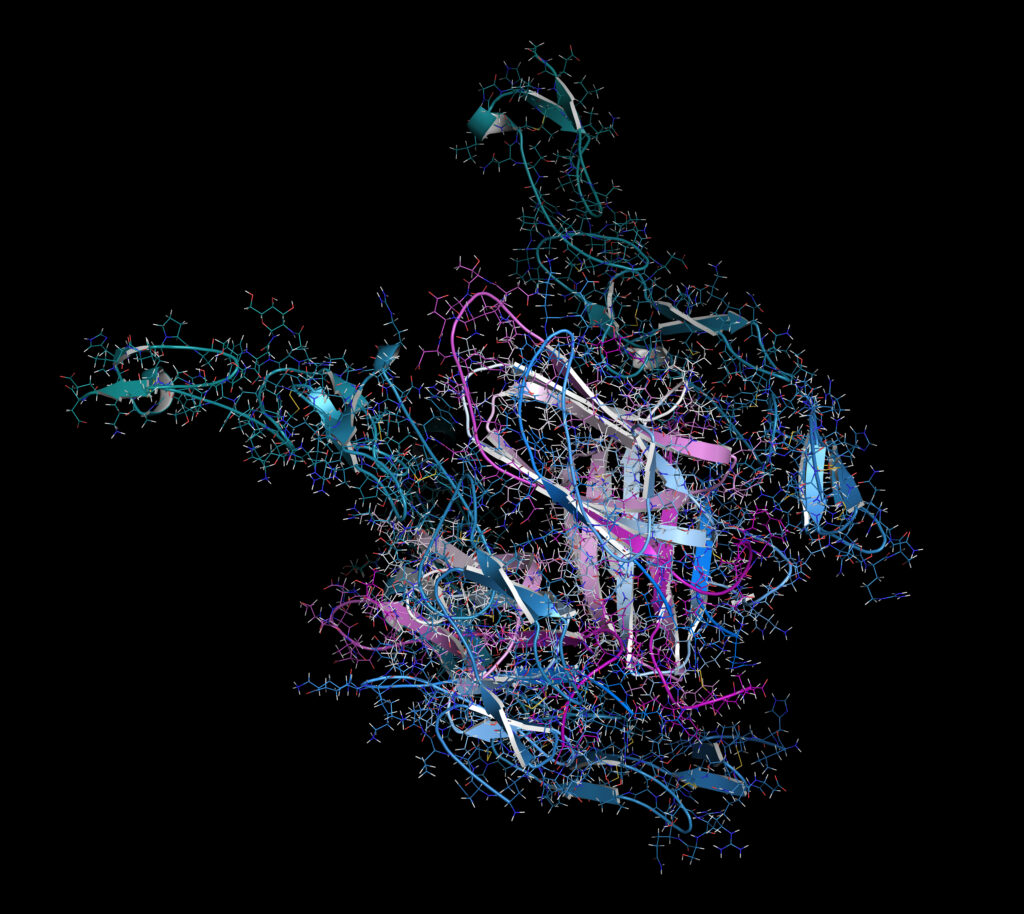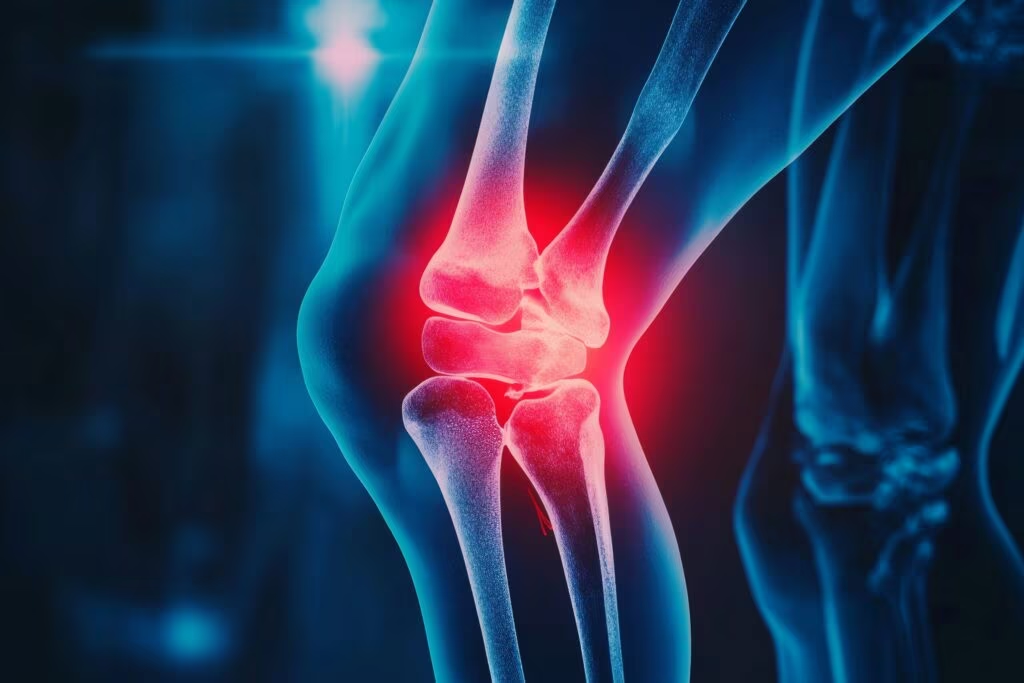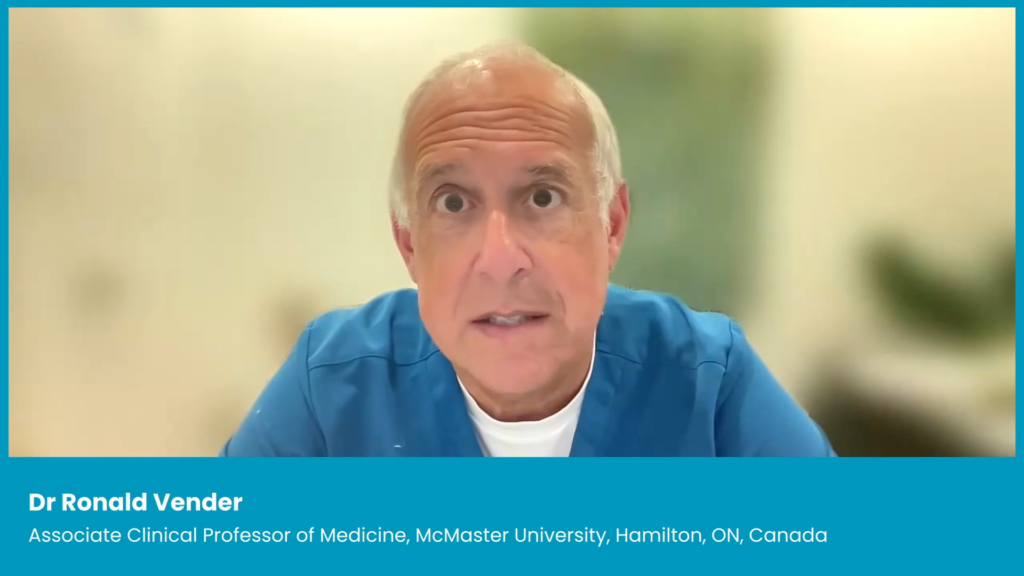



Immunometabolism in MASH therapies: a new frontier in treating liver inflammation
Metabolic dysfunction-associated steatohepatitis (MASH) is a progressive liver disease driven by fat build-up and immune activation, often linked to obesity and diabetes. Emerging therapies target both metabolic and immune pathways, showing promise in reducing inflammation, improving liver function, and reversing fibrosis. These advances offer hope for better management of this complex disease.
Unlocking the Immune Landscape of the Liver Through Innovation and Imaging: a Q&A with Future Leader, Moritz Peiseler
In this Future Leaders interview, Dr Moritz Peiseler shares how his work is reshaping our understanding of liver immunity through tools like intravital microscopy and AI-driven data analysis. He highlights the adaptive nature of immune cells in fibrotic tissue, the critical value of the clinician-scientist role, and the emerging potential of spatial and single-cell technologies. Dr Peiseler also offers thoughtful advice for young researchers aiming to bridge science and patient care.
What’s New in the 2025 ACG Crohn’s Disease Guidelines: Personalized Care and Advanced Therapies
The American College of Gastroenterology’s 2025 Crohn’s disease guidelines introduce key advancements in personalized care, diagnostics, and treatment. Highlights include genetic testing to guide therapy, adoption of intestinal ultrasound for non-invasive monitoring, and the inclusion of new biologics. Emphasizing shared decision-making and holistic care, the guidelines aim to improve outcomes by tailoring strategies to each patient’s unique profile and preferences.
#EULAR2025 Sonelokimab Shows Promise in Improving PROs for Psoriatic Arthritis: Phase II ARGO Trial
The Phase II ARGO trial evaluated the IL-17A and IL-17F inhibitor sonelokimab in psoriatic arthritis, showing promising clinical efficacy and significant improvements in patient-reported outcomes (PROs). In this interview, Prof. Laure Gossec highlights how sonelokimab reduced disease burden and improved quality of life, emphasizing the importance of PROs in assessing treatment effectiveness and guiding future development.
01. Immunometabolism in MASH therapies: a new frontier in treating liver inflammation
02. Unlocking the Immune Landscape of the Liver Through Innovation and Imaging: a Q&A with Future Leader, Moritz Peiseler
03. What’s New in the 2025 ACG Crohn’s Disease Guidelines: Personalized Care and Advanced Therapies
04. #EULAR2025 Sonelokimab Shows Promise in Improving PROs for Psoriatic Arthritis: Phase II ARGO Trial

In this episode, we speak with leading paediatric allergist Prof. Helen Brough to explore the key factors behind why some children develop allergies to foods such as peanuts, and what we can do to help prevent them. We also examine the latest developments in managing food allergies and the innovations on the horizon that could transform how we treat them.

Physician burnout is at a critical point. In this episode, Nicky speaks with Dr Alfred Atanda about why so many physicians are burning out and what can be done to change the trend. From personal experience to system-wide solutions, Dr Atanda shares valuable insights on improving physician well-being and building a more effective healthcare culture.

In this episode, we explore the future of continuing medical education (CME) with the team behind touchIME. Hannah Fisher and Matthew Goodwin share insights into global and US trends, the importance of patient inclusivity and how educational outcomes are evolving to better measure the direct impact of learning on clinical practice and patient care.

With a career that spans continents, Prof. Dedee Murrell stands out as a global leader in dermatology and a passionate advocate for women in medicine. In this episode, we sit down together to explore her inspiring journey—from her early years in the UK and medical training in the USA to pioneering therapies for some of dermatology’s rarest and underserved conditions in Australia. We also reflect on her recent MDS Lifetime Achievement Award and discuss the value of mentorship, strategies for advancing a career in dermatology and academic medicine, and how to stay at the cutting edge of medical innovation.

Watch consultant immunologists Dr Dalm and Dr Chandra outline what APDS is, the common features of this disease and option for diagnosis, treatment and management.
APD-INT-2024-0060 Date of Preparation: June 2025

Want to be featured in touchReviews in RMD?
Share your knowledge, influence clinical practices and enhance patient care in Immunology today!
- Peer-reviewed, free-to-access
- Accepting reviews, research and editorials
- No article processing fees
- Digital features and plain language summaries
- Multichannel content distribution for maximum visibility

From advances in targeted therapies to the integration of AI and steps towards precision medicine, 2024 brought many exciting developments in the field. With 2025 now unfolding, many of these are likely to continue gaining momentum and potentially redefine patient care. In ...

Rheumatoid arthritis (RA) is one of the most challenging autoimmune diseases. Early, targeted and effective therapy is crucial for achieving remission and preventing long-term joint destruction. Over the past two decades, tumour necrosis factor (TNF) inhibitors (TNFi) have been the ...

The use of immune checkpoint inhibitors (ICIs) in treating cancer has greatly improved survival outcomes, particularly in patients with advanced disease for whom successful treatment options have previously been limited. For example, in patients with metastatic melanoma, the median survival ...

Hypermobility spectrum disorders (HSDs) refer to a group of conditions characterized by an increased range of motion in joints beyond the normal limits, often due to connective tissue laxity. More stringent criteria are applied in the diagnosis of hypermobile Ehlers–...

Recent advancements made in understanding the pathology of inflammatory skin conditions have enabled JAK inhibitors, initially developed for haematology over 20 years ago, to be investigated for dermatological use. In this episode, Dr William (Bill) Damsky discusses JAK inhibitors’ journey from proof-of-concept to treating a wide range of skin conditions, their future impact on rare diseases and the debate around safety.

There is much excitement about the deployment of artificial intelligence (AI) in healthcare, and the musculoskeletal field is no exception. In this article, we introduce some of the latest developments relating to osteoarthritis (OA), osteoporosis, rheumatoid arthritis (RA) (as an ...

International experts from the American College of Rheumatology (ACR) and the European Alliance of Associations for Rheumatology (EULAR) have recently partnered to produce the much-anticipated classification criteria for antiphospholipid syndrome (APS), which were published in Arthritis & Rheumatology in August 2023.1 ...

Chronic back pain (CBP), defined as back pain lasting for 3 months or more, is the most common pain condition globally.1 Greater healthcare utilization, productivity limitations and poor quality of life have immediate and long-term impacts on patients and the healthcare ...

This corrects the article: “Gheriani GA, Tuetken R and Lenert P. Lane–Hamilton Syndrome: A Vasculitis Mimic Presenting with Diffuse Alveolar Haemorrhage and Positive ANCA Testing. touchREVIEWS in RMD. 2024;3(1):37–42” The patient consent statement was added incorrectly due to an editorial ...

It is increasingly recognized that autoimmune rheumatic diseases (ARDs) can affect people of any age, starting from early childhood and continuing until later in life. Furthermore, in recent decades, it has become apparent that Sjögren disease (SjD), commonly diagnosed ...

This editorial outlines a clinical approach to patients with periodic inflammation of unknown origin despite initial rational and targeted investigation. The focus of the editorial is on the recognition and diagnosis of systemic autoinflammatory diseases (SAIDs). Although rare, SAIDs are ...

Watch leading experts discuss updates in the treatment of systemic lupus erythematosus (SLE), lupus nephritis (LN) and Sjögren’s disease, based on data presented at EULAR 2024.

Watch Drs Ronald Vender, Richard Warren and Xenofon Baraliakos discuss UCB’s contributions to the treatment of immunological disease.
Editorial Board
Introducing the Editorial Board of touchREVIEWS in Immunology, who support our mission to advance medical knowledge and practice by ensuring the integrity, relevance, and impact of the content we publish. Together, we strive to foster a vibrant academic community and contribute to the continuous improvement of healthcare worldwide.

Peter Taylor
Editor-in-Chief
Rheumatoid Arthritis

Peter Taylor
Editor-in-Chief
Head of Clinical Sciences, Botnar Research Centre, Nuffield Department of Orthopaedics, Rheumatology and Musculoskeletal Sciences, University of Oxford, Oxford, UK
Biography
Peter C Taylor holds the Norman Collison chair of musculoskeletal sciences at the University of Oxford and is a Fellow of St. Peter’s College. He is Head of Clinical Sciences at the Botnar Research Centre within the Nuffield Department of Orthopaedics, Rheumatology and Musculoskeletal Sciences. He studied pre-clinical medical sciences at Gonville and Caius College at the University of Cambridge and his first degree was in Physiology. He subsequently studied clinical medicine at the University of Oxford and was awarded a PhD degree from the University of London for research on pathogenesis of arthritis. Professor Taylor has specialist clinical interests in inflammatory arthritis. He has over 25 years’ experience in clinical trial design in studies of biologic and small molecular therapies in rheumatoid arthritis and ankylosing spondylitis. In experimental medicine studies, Professor Taylor employs targeted therapies as probes of pathogenesis to investigate the in vivo biology of the target in the pathobiology of the disease phenotype under investigation.

Vinod Ravindran
Editorial Board

Vinod Ravindran
Editorial Board
Rheumatic diseases

Vinod Ravindran
Editorial Board
Biography
Dr Ravindran’s clinical career includes training and consultant roles at premier institutions such as King’s College Hospital, St. George’s University Hospital, Ipswich, and Maidstone. Currently, he serves as Director of the Centre for Rheumatology in Calicut, Kerala, where he leads comprehensive rheumatology services with a strong focus on multidisciplinary care.
In addition to his clinical leadership, Dr Ravindran has taught medical students from London and Cambridge universities and served as an examiner at the Guy’s, King’s, and St. Thomas’ School of Medicine. He was Assistant Professor of Rheumatology at MES Medical College, Perinthalmanna, and continues to mentor postgraduate students at his current centre.
Peter Taylor
Editor-in-Chief


Richard Furie
Expert Faculty

Elena Nikiphorou
Editorial Board
Rheumatoid Arthritis

Elena Nikiphorou
Editorial Board
Centre for Rheumatic Diseases, School of Immunology and Microbial Sciences, King’s College London, London, UK
Biography
Elena Nikiphorou, MBBS/BSc, FRCP, MD(Res), PGCME, FHEA Dr Elena Nikiphorou is a Consultant Rheumatologist and an Honorary Senior Lecturer at Kings College London. She completed her MBBS at University College London, also obtaining a first-class honours for her Intercalated BSc in physiology, a British Pharmacological Society Award and a Wellcome Trust Vacation Scholarship for her BSc Research. She has been the recipient of multiple awards, bursaries and competitive roles, including the Richard Kovacs prize by the Royal Society of Medicine in 2014, which supported a fellowship in Chicago and the Doris Hillier Award by the British Medical Association in 2018, to support her work on multimorbidity in rheumatoid arthritis and the development of management algorithms according to individual need. with a clinical/academic interest in inflammatory arthritis, rheumatoid arthritis and spondyloarthritis. She has expertise in all aspects of general rheumatology, including connective tissue and metabolic bone disease; crystal (e.g., gout) and reactive arthritis.
Vinod Ravindran
Editorial Board


Jérôme Avouac
Editorial Board

Jérôme Avouac
Editorial Board
Rheumatoid Arthritis

Jérôme Avouac
Editorial Board
Senior Rheumatologist at Cochin Hospital and Professor at the University of Paris, Rheumatology Department, Paris, France
Biography
Jérôme Avouac is a senior rheumatologist at Cochin Hospital and Professor at the University of Paris. He is responsible for a sector of day hospitalisation in the Rheumatology department, whose recruitment is mainly composed of patients with chronic inflammatory rheumatic disorders. He established a standardized systematic follow-up of joint involvement and systemic complications of rheumatoid arthritis and other inflammatory rheumatic diseases. Based on this standardized follow-up and clinical studies, he is developing medical approaches of personalized medicine for rheumatoid arthritis. Within the “Pathogenesis And Innovative Therapies In Chronic Fibro-Inflammatory Diseases” team at the Cochin Institute (INSERM U1016 UMR8104), Prof. Avouac leads innovative projects regarding the vascular aspects of inflammatory rheumatic disorders, especially rheumatoid arthritis. He also participates in the preclinical evaluation of anti-fibrotic treatments thanks to a platform of complementary animal models with dermal, pulmonary and vascular fibrosis.
Elena Nikiphorou
Editorial Board


Peter Taylor
Editor-in-Chief

 touchIMMUNOLOGY
touchIMMUNOLOGY
Register Now!
Explore the latest in medical education and stay current in your field. Create a free account to track your learning.
- Save your progress for video
- Keep track of your CME credits
- Add personalised learning notes
- Receive updates from course leaders and faculty
- Be the first to hear about new and exciting interactive learning opportunities
Latest articles videos and clinical updates - straight to your inbox
Log into your Touch Account
Earn and track your CME credits on the go, save articles for later, and follow the latest congress coverage.
Register now for FREE Access
Register for free to hear about the latest expert-led education, peer-reviewed articles, conference highlights, and innovative CME activities.
Sign up with an Email
Or use a Social Account.
This Functionality is for
Members Only
Explore the latest in medical education and stay current in your field. Create a free account to track your learning.





